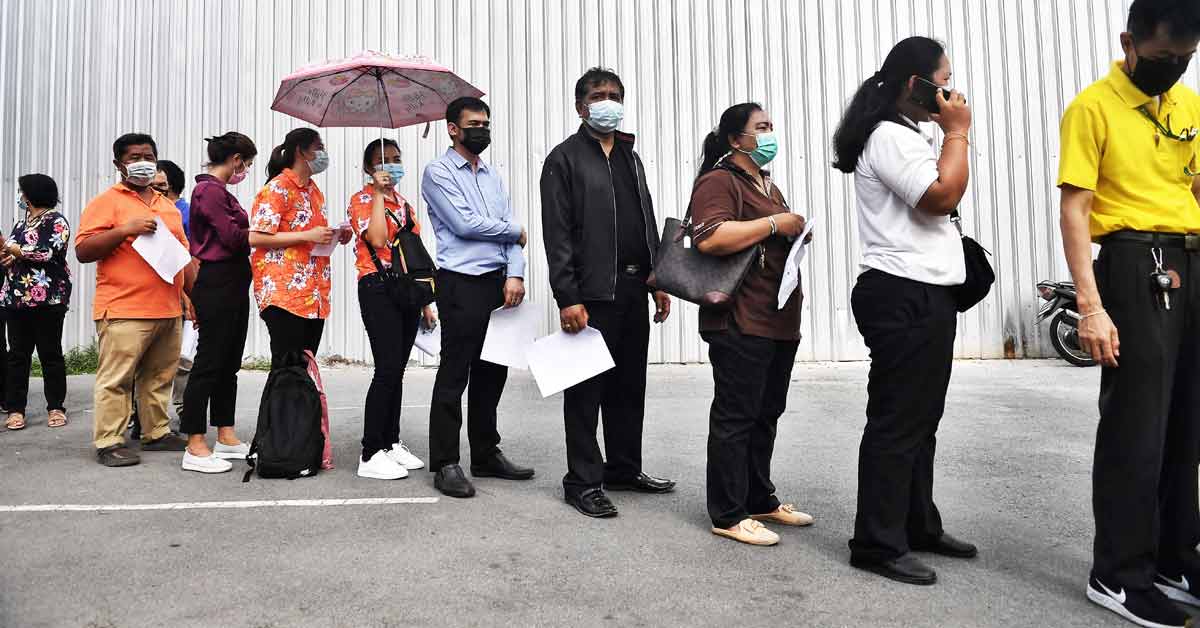Veteran Thai politician Supachai Jaisamut of the Bhumjaithai Party was absolutely right when he said: contracting COVID-19 is not a crime. Of course, it's not. But deliberately concealing information regarding risky activities that result in new clusters or a new wave of COVID-19 is.
The politician made the blunt statement on 7 April in an apparent attempt to protect party secretary-general and Transport Minister Saksayam Chidchob who tested positive for the coronavirus and is now being treated at a hospital in his home province of Buri Ram.
Rumours spread like wildfire that the minister, together with a group of bigwigs, might have visited an entertainment venue in the Thong Lor area that has become the latest COVID-19 hotspot.
The surge in new infections has seen experts confirm that Thailand – which is still in recuperation mode from the second wave linked to the Samut Sakhon seafood market – has entered its third wave of the outbreak that will put the country's already fragile economy into a coma.
Who will be held accountable for this new wave?
Saksayam has vehemently denied visiting the venue in question as alleged. At least three of his aides tested positive and he claimed he contracted the disease from his team. Yet, the minister is not able to reveal his timeline of activities.
His timeline, exposed and shared on social media, was blank during the periods of 27-28 March and 2-5 April. It was confirmed he had the virus on Wednesday.
As of yesterday, the minister remained evasive, challenging those curious about his timelines to ask health personnel as he "had told them everything".
The Thong Lor saga has exposed the dark side of more than a few high-end entertainment spots such as Krystal Club, Babyface Bangkok, Topone Club, and how important laws have been violated. To begin with, the Prayut Chan-o-cha government never lifted the emergency decree. But while police have stringently used the draconian law and other regulations to suppress pro-democracy activists for many months, they have allowed these entertainment spots to operate above the law.
Clips that went viral on social media show that at least one of the Thong Lor venues that serves the rich and powerful had bypassed all anti-virus measures. Social distancing is only in the books. One clip shows pretty models sharing the same glasses, encouraged by male customers, who might have also gulped the drinks – and this is why the new wave was inevitable.
Behind-the scenes-services – as claimed by former massage parlour tycoon Chuwit Kamolwisit – for VIPs are said to be even more intimate.
Such breaches of the rules could not have been possible without state authorities pretending to look the other way. The guards against the coronavirus, as repeatedly cited by the those at Thailand’s Centre for COVID-19 Situation Administration, would not have been let down if police and the authorities had done their jobs properly.
Now the public is anxious over whether the government and authorities will dare to enforce all the relevant laws, particularly the Disease Control Act, which contains a clause about information concealment or lying to health authorities and making contact tracing difficult.
Much has been said about this clause, which is punishable by a jail term. It seems the authorities have rarely enacted it.
The government must ensure all laws are brought to bear against violators, regardless of their social or political positions, otherwise lessons will never be learnt.
This article was first featured on 9 April, 2021 in the Bangkok Post.
Related Articles:
